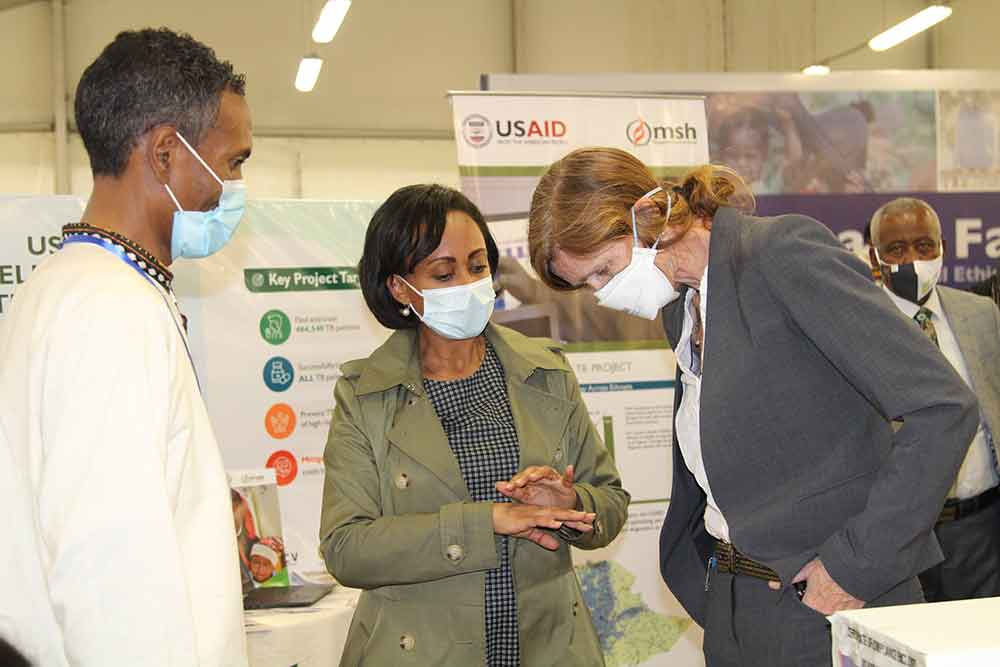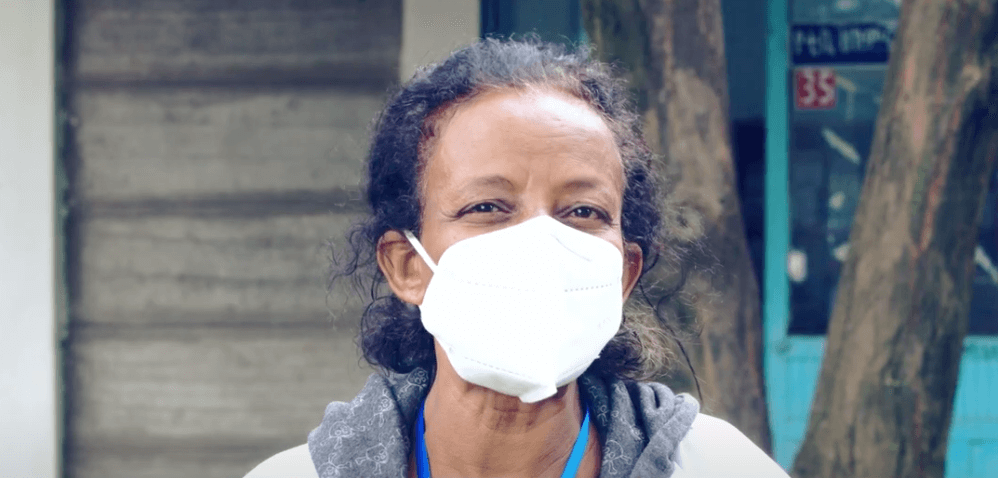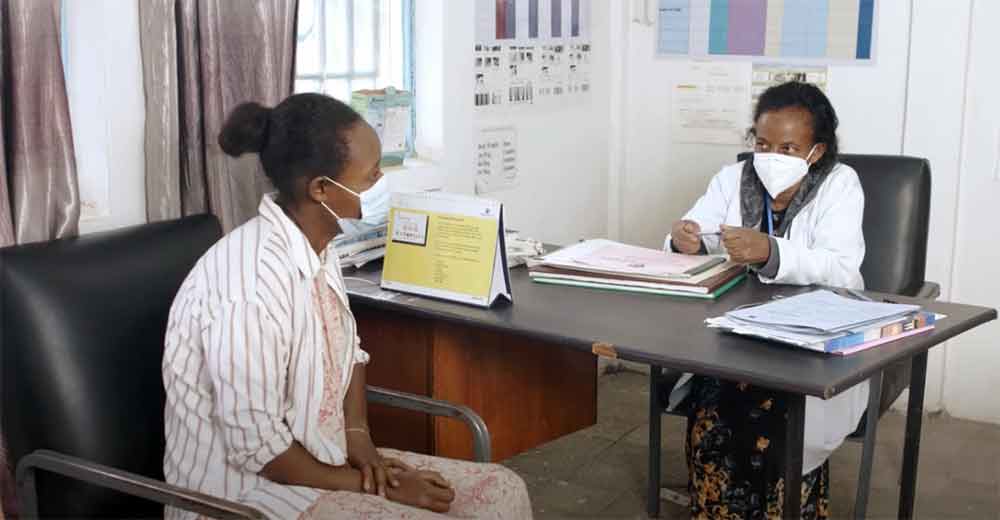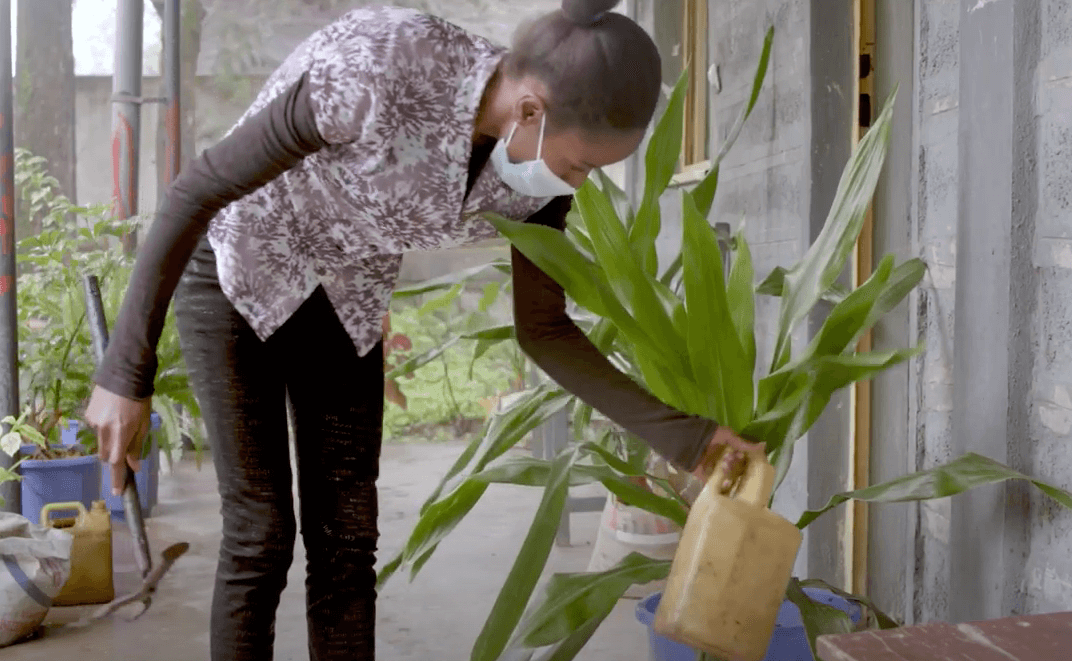USAID Eliminate TB Project
USAID Eliminate TB Project
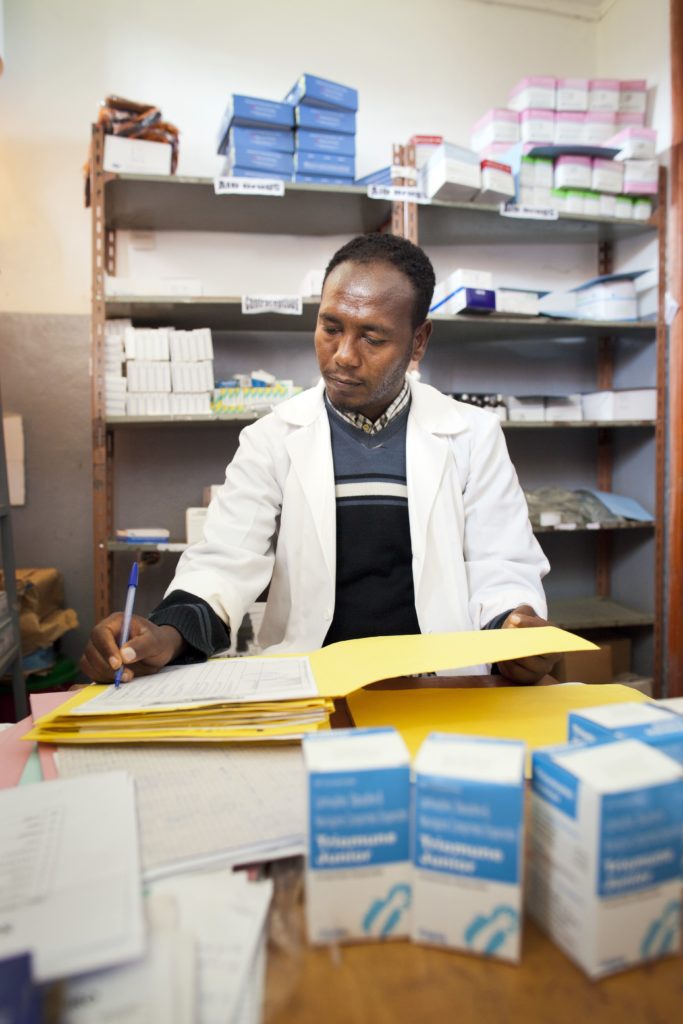
Overview
The five-year USAID Eliminate TB Project builds on MSH’s contributions to Ethiopia’s TB control efforts for the past 15 years. Collaborating with longtime partner KNCV Tuberculosis Foundation and three local partners, Amhara Development Association (ADA), Oromia Development Association (ODA), and REACH Ethiopia, MSH will work to reduce TB incidence and mortality by engaging public and private sector players to improve the quality and sustainability of TB services in Ethiopia.
The MSH team will support cost-effective strategies to:
- Boost the health care system in both the public and private sectors to increase access to early TB diagnosis and treatment and to alleviate unnecessary costs for patients
- Support the government of Ethiopia to target case detection based on prevalence, introduce highly sensitive and specific diagnostic and screening tools, and boost prevention and treatment for latent TB infection
- Emphasize country ownership and sustainability, working with the Ethiopian government to more effectively mobilize and use domestic resources and to implement, manage, and report on all programmatic activities.
The project will also engage communities, civil society organizations, and other private partners at the local level in TB prevention and control.
Strengthening Lab Capacity to Save Lives: How MSH is Helping Ethiopia Eliminate TB
A key component of the USAID Eliminate TB Project’s approach is working to increase access to early TB diagnosis and treatment for patients. To do so, the project focuses on expanding and improving laboratory services by providing state-of-the-art GeneXpert machines to health facilities throughout the country and training laboratory technicians on their use.
Improving Access to Patient-Centered Drug-Resistant Tuberculosis Management Services in Ethiopia
Despite the progress made so far, drug-resistant TB (DR-TB) case finding remains inadequate and low. One of the main enduring challenges is the insufficient implementation of first-line and second-line drug susceptibility testing, resulting in the number of DR-TB patients that are detected and enrolled in treatment falling consistently below expectations. This technical brief explores how the USAID Eliminate TB Project team is helping hospitals in Ethiopia improve this vital function.
Join MSH at the 54th Union World Conference on Lung Health
Centered on the theme, “Transforming Evidence into Practice,” and focused on our approaches in Ethiopia and Afghanistan, MSH colleagues will discuss tuberculosis prevention and treatment in post-conflict environments, engagement of local organizations to ensure the sustainability of TB programs, and development of public-private partnerships to elevate TB care delivery. Join us as we focus on converting research into tangible practice and champion evidence-based TB health policies and decision making.
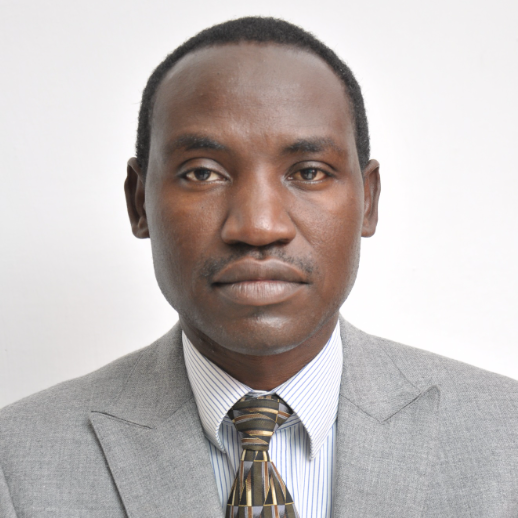
Dr. Daniel Gemechu
Chief of Party
Project Contact
Dr. Daniel Gemechu Datiko has more than 15 years of experience designing, implementing, and managing public health programs and community-based health interventions related to blindness prevention, leprosy, HIV, maternal health, digital health, and tuberculosis. Dr. Datiko previously served as the project director for Challenge TB Ethiopia within MSH-supported regions. He has served as a consultant for the Liverpool School of Tropical Medicine UK on designing and implementing community-based TB interventions; for the Stop TB Department in Cambodia where he designed private-sector engagement in TB; and for the World Health Organization in Zimbabwe where he designed and wrote guidelines for targeted mass screening for TB in Zimbabwe. Dr. Datiko has served as leadership at regional and national levels, received and managed grants from international donors, contributed to capacity building by supervising postgraduate students, and published more than 40 articles in peer reviewed journals. Dr. Datiko began his career as a general medical practitioner and has worked closely with the Ministry of Health of Ethiopia throughout his career, including coordination the TB, Leprosy and Blindness Prevention and Control Program for the Southern region of Ethiopia. He holds a PhD in epidemiology and international health from the University of Bergen, Norway.
Donors & Partners
Donors
The United States Agency for International Development
Partners
KNCV Tuberculosis Foundation
Amhara Development Association (ADA)
Oromia Development Association (ODA)
REACH Ethiopia
